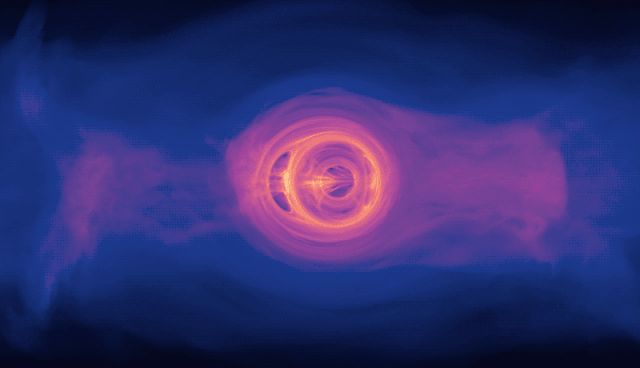Weird 'gravitational molecules' could orbit black holes like electrons swirling around atoms
By Paul Sutter - Astrophysicist 10 hours ago

This computer simulation shows supermassive black holes only 40 orbits from merging.
(Image: © NASA's Goddard Space Flight Center)
Black holes are notable for many things, especially their simplicity. They're just … holes. That are "black." This simplicity allows us to draw surprising parallels between black holes and other branches of physics. For example, a team of researchers has shown that a special kind of particle can exist around a pair of black holes in a similar way as an electron can exist around a pair of hydrogen atoms — the first example of a "gravitational molecule." This strange object may give us hints to the identity of dark matter and the ultimate nature of space-time.
Ploughing the field
To understand how the new research, which was published in September to the preprint database arXiv, explains the existence of a gravitational molecule, we first need to explore one of the most fundamental –- and yet sadly almost never talked about –- aspects of modern physics: the field.
A field is a mathematical tool that tells you what you might expect to find as you travel from place to place in the universe. For example, if you've ever seen a TV weather report of temperatures in your local area, you're looking at a viewer-friendly representation of a field: As you travel around your town or state, you'll know what kind of temperatures you're likely to find, and where (and whether you need to bring a jacket).
This kind of field is known as a "scalar" field, because "scalar" is the fancy mathematical way of saying "just a single number." There are other kinds of fields out there in physics-land, like "vector" fields and "tensor" fields, which provide more than one number for every location in space-time. (For example, if you see a map of wind speed and direction splashed on your screen, you're looking at a vector field.) But for the purposes of this research paper, we only need to know about the scalar kind.
More:
https://www.livescience.com/black-holes-gravitational-molecules-evidence.html?utm_source=notification
